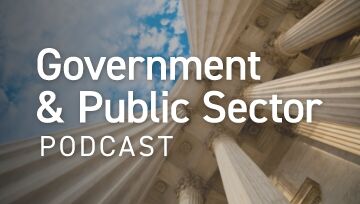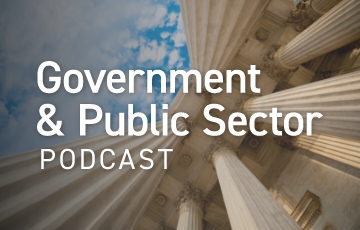Contributor: Jennifer Moran, Manager, Assurance Services
This year’s North Carolina Government Finance Officers Association (NCGFOA) provided our Government & Public Sector professionals with ample networking and relationship building opportunities, timely updates on GASB and the North Carolina legislative session, and informative sessions about the current state of the economy and winning the talent war. Opportunities to meet with clients in a less structured environment allowed for relationships to be strengthened and expertise to be shared regarding the current issues that most heavily impact the industry.
System Development Fees
System Development Fees was a hot topic relating to water and sewer capacity and future connection fees charged by local governments. System Development Fees are those amounts assessed on new developments to cover costs (previously or subsequently incurred) which are necessary to either serve or continue to serve the new development.
Due to changes in legislation and previous court cases, governmental units will need to proceed with caution to ensure they follow what is allowed. Local governments must make sure they adhere to what is explicitly allowed under State Statutes, as any charges not conforming with State Statute may not be legal. Special attention should also be paid when a governmental unit is providing services to another governmental unit.
Opioid Settlement Funds
Opioid Settlement Funds were also highlighted, noting that governmental units need to fulfill both the requirements of the North Carolina Memorandum of Agreement (MOA) and the North Carolina Local Government Budget & Fiscal Control Act. This means that units will need to file a resolution for which option they are using for expenditures, option A or B, under the MOA requirements.
They must also comply with state law which mandates budgeting requirements to obligate and expend these funds. Since the MOA is not currently a grant contract, the grant project ordinance is not a lawful budgeting option. Funds must be placed in a Special Revenue Fund and a legal annual budget ordinance is required. Local governments may not budget under a grant project budget.
Current Economic Trends
Economic trends indicate that spending continues to be unaffected by the increase in interest rates, which means we should expect to see continued increases in sales tax collections in the State of North Carolina. This has been largely attributed to excess savings that are in the economic system, although current savings rates appear to be very low and are expected to lead to spending adjustments.
Talent Acquisition and Retention
Another hot topic that affects us all is finding and retaining employees. The Keynote speaker for the conference advised on how to win the talent war, indicating that employees can be key to our employers’ success in finding and retaining top talent. Referrals often provide a greater retention rate, 45% as compared to 20% from a standard job posting. It was also noted that 33% of employees quit within the first 90 days.
Employee turnover can be decreased by creating an unforgettable onboarding experience that extends those first 90 days, including new employees to contribute, providing a tour and lunch, implementing a structured plan for those first 90 days and meeting with executives. Another key takeaway from this session suggested that telling the story of your company in job postings with links to direct impacts that the applicant may have on their community and environment is highly effective in attracting talent. Additionally, using video to help promote jobs can get more applicants interested in applying for jobs. Video also allows companies to directly address concerns applicants might have about joining your organization.
Alternate Reporting Project
The State & Local Government Finance Division is working on an Alternative Reporting Project. Intended for smaller units, the goal is to simplify the financial statements and the accounting basis to improve the timeliness of these audits and heightened interest in the CPA community to perform these types of engagements. This will be a multi-year project and will require legislative approval. While this will only benefit smaller units that do not have any debt (in which case GAAP financial statements are required), this alternative is still in the research phase. Stay tuned for more information.
GASB Update
GASB recently announced that it is suspending the governmental fund portion of the new reporting model. While many aspects of the project will move forward (changes to budget presentation, MD&A, etc.) the fund reporting piece of the project will not be moving forward at this time. Memorandum and spreadsheets pertaining to GASB Statement 96 SBITA implementation for June 30, 2023, have been made available via the NC Treasurer website. GASB Statement 100: Accounting Changes and Error Corrections is applicable for fiscal years beginning after June 15, 2023. Finally, GASB Statement 101: Compensated Absences is on the horizon and will be effective for fiscal years beginning after December 15, 2023.
Don’t forget the NC Legislature is still in session so there may be more to come before it closes!




